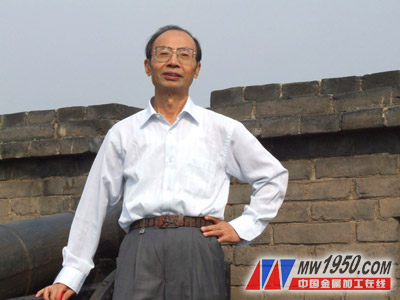[ Opinion ] As a clean production process pursued in the 21st century, induction quenching has a series of advantages that other heat treatment processes are difficult to compare and replace. Induction heating quenching is one of the important processes of heat treatment, especially because it has the advantages of high production efficiency, energy saving, low environmental pollution and easy automation. In the strengthening method of gears, quenching, carburizing and seepage Nitrogen constitutes the four basic processes together, and the induction hardening process has played an important role in the development of the gear from the soft tooth to the hard tooth surface technology. According to the early industry survey, the proportion of induction braking in China's automobile, tractor, mining machinery gear and universal reducer gear is relatively large, especially the machine tool gear, which accounts for more than 70% of the total gear. With the development of industrial technology, the parameters of various mechanical equipment are continuously improved, and the corresponding requirements for gear bearing capacity, running quality and volume are put forward accordingly. Therefore, the gear induction hardening surface strengthening process has been greatly challenged. The original metallurgical mining machinery gears, general-purpose reducer gears and machine tool main drive system gears with induction heating quenching have been changed to carburizing and quenching processes to varying degrees. For example, more than 50% of machine tool gears produced by joint ventures in China use carburizing and quenching. . The reason for the transfer of this strengthening method is that, on the one hand, after the mechanical product upgrades, the higher performance requirements of the gear are put forward, the potential and essential weakness of induction quenching is manifested; on the other hand, the induction heating quenching technology in China has developed over the years. Slow, difficult to adapt to new requirements. However, as a clean production process pursued in the 21st century, induction quenching has a series of advantages that are difficult to compare and replace with other heat treatment processes. In fact, the application of induction hardening in foreign countries is still quite extensive. In Japan, railway locomotive gears, including high-speed locomotive gears, are still dominated by induction hardening. In the United States, as an important process recommended in the AGMA 218 standard, the following table shows the bearing capacity levels of each heat treated gear. As can be seen from the data in the table, the carburized and quenched gears have the highest level, and the induction hardened gears are second only to carburizing, especially for large modulus gears, which is more advantageous than the quenching and nitriding processes. Gear rating for different heat treatment conditions Gear size / mm AGMA grade / kW Modulus Diameter section DP Tempering UTS 772N/mm 2 or less Tempering UTS 1158N/mm 2 or less 4140 steel Nitriding Induction hardening Carburizing and quenching 2 2.5 3 4 6 8 12 20 30 12.7 10 8.5 6.35 4.23 3.18 2.12 1.27 0.85 1.5 3 5 11.6 38.7 88.6 282 1163 3521 2.9 5.6 9.4 21.8 72.9 167 530 2192 6636 3.3 6.6 11.1 26 84.5 194 615 2558 7723 3.6 7.2 12.1 28.3 94.9 218 691 2875 8680 4.2 8.3 14 32.9 111 256 815 3390 10258 Note: UTS - tensile strength; Typical applications for induction hardened gears in the United States include: (1) Large excavator gears. (2) Heavy-duty crane drive gears. (3) Large torque transmission gear of the sugar mill. (4) The main drive gear of the rolling mill, the shear gear and the crimped mechanical gear. (5) Cement mill drive gears. The application of induction hardening gears also includes: when considering economics and high strength, the quenching and large gears are equipped with induction hardened pinions, or the strength level only requires pinion carburizing and quenching, while the large gears do not need carburizing and quenching. Induction hardening is optional. From the above analysis, according to the current status of gear heat treatment in China, I think we can do some work from the following aspects: (1) The gear design department should determine the bearing capacity range according to the working conditions of the gear application, and reasonably select the heat treatment strengthening method. Do not blindly use carburizing and quenching, especially in the case that the current steel price increase and the carburizing and quenching gear manufacturing cost are relatively high. It is necessary to fully consider the affordability of the enterprise. (2) Gear production plants have carried out large-scale technical transformations in carburizing and quenching heat treatment in recent years, which have greatly promoted the production of hard toothed gears in China; now it is appropriate to use induction hardening hardware according to product needs. Make some investments in software and improve and improve the level of production technology while changing the single production method. (3) China's induction heating power supply and quenching equipment production plant (company) should cooperate with the gear production factory for the technical needs of gear products, and develop complete sets of equipment and corresponding processes from the perspective of opening up their own markets, such as promising prospects. The dual-frequency, multi-frequency simultaneous heating of high-power power supply, pulse heating power supply, CNC gear quenching machine tools and supporting auxiliary facilities and process software have potential markets. In short, from the perspective of gear production as a whole, the application of induction hardening technology still has potential for development. This article was issued by the "Mechanical Workers" (Hot Processing), the 11th issue of 2006, so stay tuned! basin faucets, washbasin mixer, basin tap, faucet oem Guangdong Kinen Sanitary Ware Industrial Co.,Ltd. , https://www.kinengroup.com
Zhengzhou Institute of Machinery Chen Guomin
Copyright, without written permission , may not be reproduced!